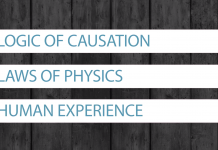
by Kate Ristow
At the end of this article, you will find ideas for nurturing and nourishing your faith beyond knowing Catholic vocabulary.
The idea for this article came from the field, as so many great suggestions do. A conscientious DRE approached CATECHIST’s dynamic editor, Kass Dotterweich, who was working in the CATECHIST exhibitor booth at the Los Angeles Religious Education Congress. Kass attends several major conferences each year to get feedback and gather information.
The DRE told Kass that she needed a tool to give her catechists that will acquaint them with the basic Catholic words and definitions we use in religious education.
Kass asked if what she was looking for was a glossary, which is a specialized listing of terms within a specific area or domain of knowledge.
“Exactly!” said the DRE. She mentioned that, although there is a glossary in each of the grade level texts the parish uses, there was no cumulative listing, something that would benefit all of her catechists, especially those new to the ministry.
So this article is a reference tool for catechists, Catholic school teachers, and catechetical leaders. You have permission to duplicate it as needed for your staff and parents. It is not meant to be an exhaustive resource.
A Catechetical Glossary
acclamation: a short prayer of praise that is recited or sung by the assembly during a liturgical celebration. An acclamation can be one word (Alleluia!) or longer—such as the three-line acclamation we pray during the Eucharist Prayer.
apologetics: a branch of theology in which people use reason and belief to explain the teachings and truths of the Catholic faith to non-believers. The term comes from a Greek word that means “to speak in defense.”
candidate: a person previously baptized into another Christian faith who is preparing to be welcomed into full communion with the Catholic Church. At the Easter Vigil, candidates make a profession of faith, are confirmed, and receive the Eucharist for the first time.
Canon Law: the rules or norms governing the Catholic Church. Canon law was first developed in the apostolic era and added to through the writings and sermons of the Fathers of the Church. Periodically, the Code of Canon Law has been updated. The latest major revision was a result of the Second Vatican Council (1962-1965).
Canon of the Scriptures: the official listing of books that the Catholic Church believes are the Word of God written under the guidance of the Holy Spirit. There are 73 books in the canon—46 in the Old Testament and 27 in the New Testament.
catechumen: an unbaptized person preparing to receive the Sacraments of Initiation in the Catholic Church at the Easter Vigil. This preparation process is known as the Rite of Christian Initiation of Adults (RCIA).
catechumenate: the second period of the RCIA process in which those preparing for initiation into the Christian community grow in their understanding of the Word of God, worship, community life, and the call to service.
charism: a spiritual gift given to individuals or groups by the Holy Spirit for the good of the community. See 1 Corinthians 12. Charity, or love, is the greatest gift.
Christocentric: a theology, or system of belief, that is centered on the life, teachings, and mission of Jesus Christ.
Deposit of Faith: the legacy of faith contained in Sacred Scripture and Tradition through which God reveals himself to us.
Doctors of the Church: a title given since the Middle Ages by the pope or an ecumenical council to saints who were great teachers of our faith. They include the four great Fathers of the Church and 29 other saints, including three women. (Also see “Fathers of the Church.”)
doctrine: an official Catholic teaching, revealed by Jesus and proclaimed by the teaching authority of the Church.
dogma: an infallible teaching of the Church. Dogmas must be believed by members of the Church.
domestic church: the Christian household or the “church of the home.” The family is the most basic unit of the Church and all catechesis begins in the home.
ecclesial: pertaining to, or related to the Church. The term ecclesiology refers to the study of the Church.
evangelization: the process of witnessing to and sharing the Good News of Jesus Christ and helping others to “meet” our Lord. This mission is shared by all believers.
Fathers of the Church: saintly writers and teachers of the early Church whose thinking contributed to our understanding of Catholic doctrine. The most famous Fathers of the Church include Sts. Ambrose, Augustine, (Pope) Gregory the Great, and Jerome.
formation: the ongoing, lifelong process through which all Christians are called to a deeper relationship with Christ and conversion, a turning away from sin, and a giving oneself wholly to the Lord.
hierarchy of truths: the ordering principle for Catholic doctrines that relates them to the central mystery of the Church, the Holy Trinity. The hierarchy does not “rank” doctrines; it places all teachings of the Church in relationship to what God has revealed to us about the Trinity.
Immaculate Conception: the dogma of the Catholic Church that states our belief that Mary was free from original sin from the first moment of her life—her conception in the womb of her mother, St. Ann. This privilege prepared Mary to become the mother of God’s Son, Jesus.
Incarnation: the word the Church uses to describe our belief that the Son of God was born fully human while remaining fully divine. The word incarnation means “to take on flesh.” Jesus took on flesh in the womb of his mother, Mary. Jesus was human like us in all things except sin.
inculturation: the process of sharing the Gospel with people of all cultures, times, and places. Just as Christ shared his teaching with the people of his time and place, respecting and responding to their culture, the Church today is called to recognize the customs, richness, and gifts of each culture she seeks to evangelize, while remaining true to the teachings of the Gospel.
invocation: a prayerful calling on God, Jesus, or the Holy Spirit for aid, protection, or inspiration. An example of an invocation is found in the Penitential Rite of the Mass.
lay ministry: the vocation of all the baptized faithful to continue Christ’s work in the world. The Catechism of the Catholic Church quotes Pope Pius XII who described lay believers as the “front line of Church life” (CCC, n. 899).
liturgical catechesis: the process of ongoing initiation of people into the mysteries of Christ through the Sacraments. The two main elements are liturgical education (one of the six Tasks of Catechesis), which puts people into intimate communion with Jesus Christ through the study of the symbols, prayers, and gestures of our sacramental rites; and lectionary-based catechesis, in which the readings of the Church year are explored weekly by breaking open the Word through discussion and shared prayer.
Magisterium: the teaching authority or office of the universal Church that, with the guidance of the Holy Spirit, authentically interprets Catholic beliefs and morals. The Magisterium is the pope united with the Catholic bishops.
moral formation: catechesis that leads believers to transform their lives according to the teachings and example of Jesus Christ. Moral formation includes teaching the Ten Commandments, the Beatitudes, the principles of Catholic social teaching, and other moral traditions. It includes encouraging believers to give witness to Jesus’ teachings in their daily lives.
mystagogy: the final period in the process of initiation into the Church community that takes place in the weeks following the Easter Vigil. Mystagogy means “instruction on the mysteries.” For all Catholics, it is the ongoing, lifelong process of reflection on the meaning of Baptism in each individual’s life. For neophytes, or the newly initiated, it also entails catechesis and reflection on the Sacraments of Initiation and the experience of the catechumenate.
orthodoxy: the practice of remaining true to the beliefs and traditions taught by the Catholic Church.
Paschal Mystery: the saving event accomplished by Jesus through his passion, death, Resurrection, and ascension. The term recalls the Hebrew Passover, when God delivered the Israelites from Egypt. Through the Paschal Mystery, Christ “passed over” from death to life and to the Father. We celebrate this mystery during the Triduum, the Easter Season, and in all the Sacraments.
pedagogy: the process of teaching the message of Christ, Sacred Scripture, and the Tradition of the Church in ways that respect and involve the learner and the learner’s life experiences and circumstances.
preferential option for the poor: a basic principle of Catholic social teaching emphasizing that the spiritual and physical welfare of the poor is the responsibility of every believer and an essential element of living the Gospel. The spirit of this principle is rooted in “The Judgment of the Nations” (Matthew 25:31-46).
Revelation: God’s self-communication to us of his divine plan for the salvation of all people and his invitation to us to respond in faith and love to all that is revealed. God has fully revealed himself to us in his Son Jesus Christ.
Tradition: the beliefs and practices of the Catholic Church that have been handed down from the Apostles through the guidance of the Holy Spirit. The source of this living Tradition is the revelation of God in Jesus Christ.
vocation: the call that each of us receives from God to live out our Baptism in service to him and others.
Additional Resources and Research Tools
Catechism of the Catholic Church © 1994. United States Conference of Catholic Bishops, Washington, D.C. Also available online at usccb.org/catechism/text.
National Directory for Catechesis © 2005. United States Conference of Catholic Bishops, Washington, D.C.
General Directory for Catechesis © 1997. United States Conference of Catholic Bishops, Washington, D.C. Also available online. Go to vatican.va and choose your preferred language. Enter “General Directory for Catechesis” in the search engine.
United States Catholic Catechism for Adults © 2006. United States Conference of Catholic Bishops, Washington, D.C.
Kate Ristow, Contributing Editor to CATECHIST, is National Catechetical Consultant for RCL Benziger. She has been involved in children’s religious education for over 25 years as a Catholic-school teacher and parish catechist.
Nurturing and Nourishing Your Faith
Being the kind of catechist who brings the message of Jesus and our Church to our students’ hearts and minds involves more than knowing Catholic vocabulary. Who you are and how you witness to your faith in your actions and attitudes speaks louder than any lesson you will ever teach.
Yet, it is important that you, too, continue to grow as a person of faith. Becoming a disciple of Christ is a lifelong process. Here are three things you can do to nurture and nourish your faith.
1. Devote more effort to your prayer life. Take five to ten minutes a day to sit quietly and allow the Lord to speak to you in the silence of your heart. Read the daily Scriptures and choose one way you will put them into practice that day. Get in the habit of thanking God for the blessings in your life. Talk to the Lord throughout the day as you experience the ups and downs of life with brief expressions of petition, blessing, praise, and sorrow.
2. Join a parish program for adults—Scripture study, a small Christian community, the social-action committee—that will help you grow in your faith. Participate in the Parish Mission and turn out to listen to guest speakers hosted by your parish or cluster.
3. Attend all catechist meetings during the year and make it a priority to participate in a diocesan or regional catechetical workshop at least once a year. Most parishes will reimburse you for your out-of-pocket expenses.
Copyright 2011, Bayard, Inc. All rights reserved. This article is protected by United States copyright and other intellectual property laws and may not be reproduced, rewritten, distributed, redisseminated, transmitted, displayed, published or broadcast, directly or indirectly, in any medium without the prior written permission of Bayard, Inc.
This article was written by the Catechist Staff and appeared in Catechist magazine, January 2011.
Image Credit: Shutter Stock 36076513




